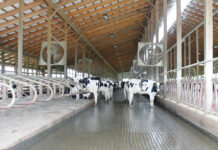STANFORD, Calif. — Aquaculture is no longer a fledgling industry. Half of the fish consumed globally is now raised on farms, according to a new report by an international team of researchers.
Environmental strain
But while the industry is more efficient than ever, it is also putting a significant strain on marine resources by consuming large amounts of feed made from wild fish harvested from the sea, the authors conclude.
“Aquaculture is set to reach a landmark in 2009, supplying half of the total fish and shellfish for human consumption,” the authors wrote.
Between 1995 and 2007, global production of farmed fish nearly tripled in volume, in part because of rising consumer demand for long-chain omega-3 fatty acids.
Oily fish, such as salmon, are a major source of these omega-3s, which are effective in reducing the risk of cardiovascular disease, according to the National Institutes of Health.
Demand gains
The huge expansion is being driven by demand, said lead author Rosamond L. Naylor, director of the Stanford Program on Food Security and the Environment.
To maximize growth and enhance flavor, aquaculture farms use large quantities of fishmeal and fish oil made from less valuable wild-caught species, including anchoveta and sardine.
Environmental impact
In 2006, aquaculture production was 51.7 million metric tons, and about 20 million metric tons of wild fish were harvested for the production of fishmeal.
On the policy front, Naylor pointed to California’s Sustainable Oceans Act and the proposed National Offshore Aquaculture Act, which call for reductions in the use of fishmeal and fish oil in feeds. She also applauded plans by the National Oceanographic and Atmospheric Administration to develop a comprehensive national policy that addresses fisheries management issues posed by aquaculture.









